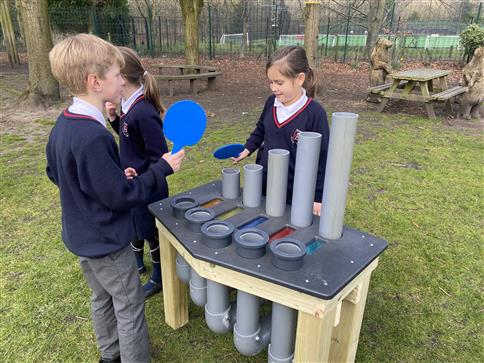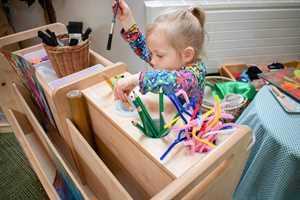Children's Health
Learning through play ideas to benefit children's mental health and well-being
The days are cold, it's almost dark by mid-afternoon and indoors seems a much cosier place to be.
However, we can really boost our children’s well-being by making sure they spend enough time outdoors.
‘Screen time’ seems to increase during the winter months but regular time spent outdoors can make children feel good and allow them to function well.
There is evidence to suggest that leading sedentary, indoor lifestyles is having negative consequences on children’s health.
Obesity rates in both reception and year 6 aged primary school children increased between 2020 and 2021 giving the highest annual rise since the NHS National Child Measurement Programme began in 2006.
Other physical health problems on the increase include vitamin D deficiency, leading to a major rise in the childhood disease rickets, short-sightedness and asthma.
Physical problems are only part of the story, NHS England reports that: rates of probable mental disorders have increased since 2017, in 6- to 16-year-olds from one in 9 to one in 6.
It is believed that children’s emotional resilience is declining and they are less likely to take risks.
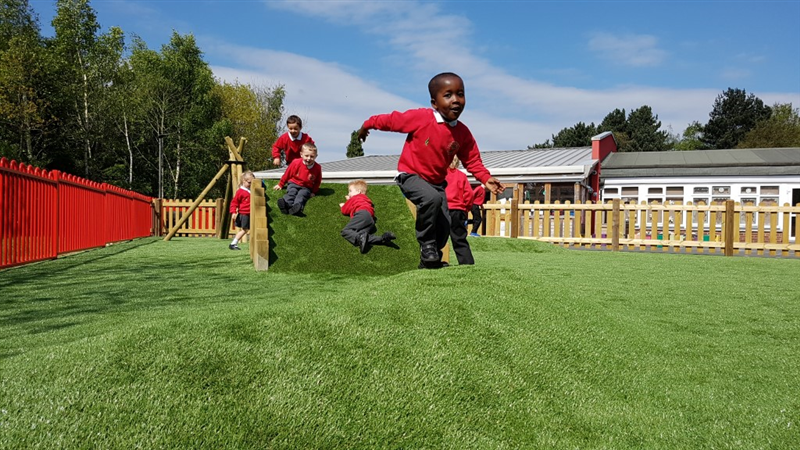
If children don’t have the freedom and independence to play and try out new things within nature, they may be less likely to cope with risks and challenges as they approach adulthood.
Bad weather often looks worse through a window, but with warm, waterproof clothing, getting outdoors can be a positive learning experience for our pupils. This blog will explore the benefits of taking our lessons outside this winter in supporting children’s mental health and well-being.
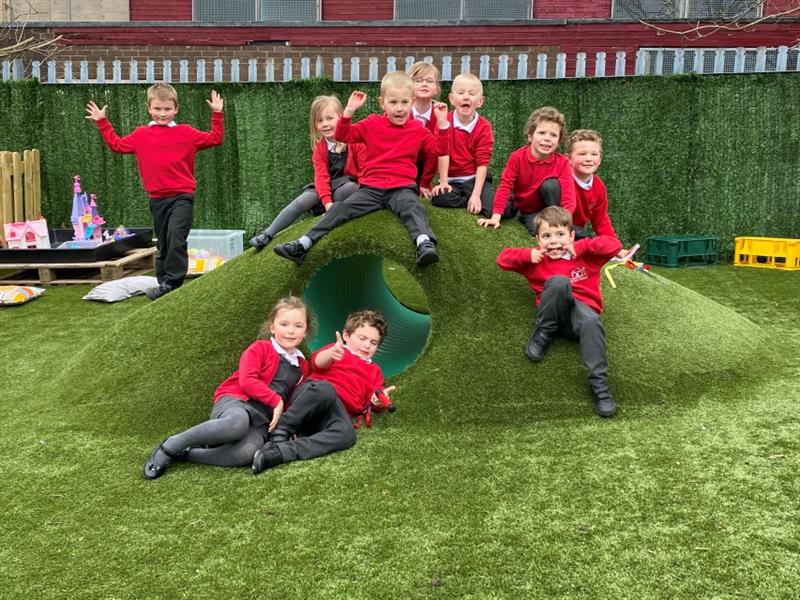
Exercise benefits children both physically and mentally.
When playing outside children are usually naturally active, their pulse rate rises and they may become out of breath.
Whether playing sports with their friends, walking around the nature garden or climbing to the top of the tower, exercise helps to keep children’s hearts, bodies and minds healthy.
Evidence suggests that exercise can help with mood, anxiety and stress. If children are regularly active each day, they may feel good about themselves, be able to concentrate and sleep better.
Daily exercise can help to maintain a healthy weight and build strong bones, muscles and joints.
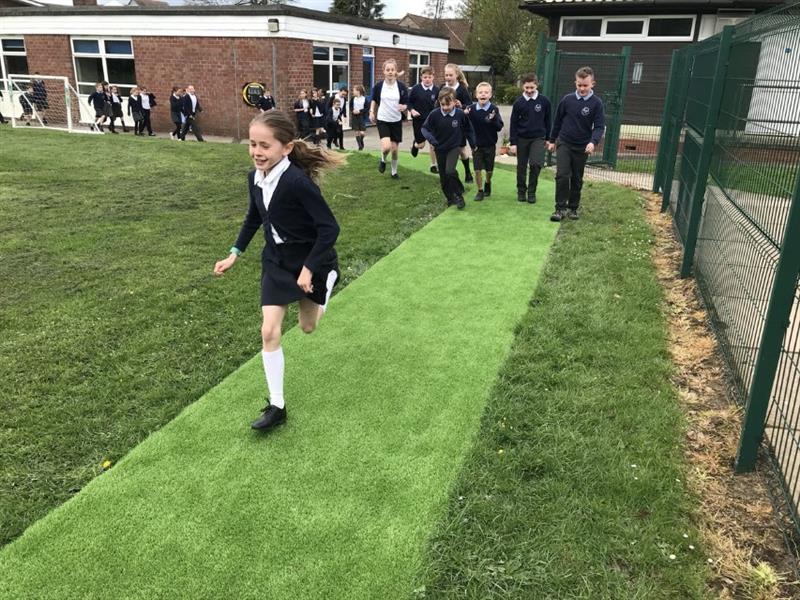
When we exercise ‘feel good’ chemicals called endorphins are released in our brain. It also effects chemicals called ‘dopamine’ and ‘serotonin’ which are related to mood and anxiety.
Exercise can help brain cells to grow and connect, our hearts, muscles and bones become stronger and work better; being physically active allows children to have fun and build upon social skills with their peers.
Completing a ‘Daily Mile,’ introduces daily physical activity into children’s lives. Pupils benefit from being outside in the fresh air which improves mental health and well-being.
This form of exercise is not a race or a competition therefore allowing all children to succeed and helping them to build relationships.
Participating in the daily mile can reduce anxiety and stress, children become healthier and proud of their improvements in physical fitness.
Spending a short amount of time outside each day to participate in yoga or practise mindfulness techniques can be really beneficial for children.
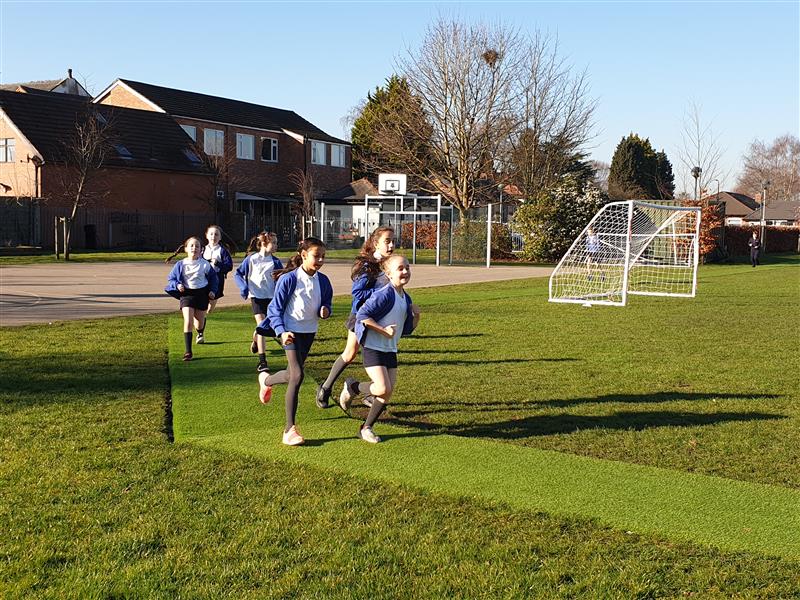
Yoga can provide even young children with a moment of calm and clarity within nature. Pupils begin to look inwards, focussing on how they feel in the moment which can help to manage anxiety.
Oxygen circulates around the body and brain during yoga practice and breathing exercises, improving memory retention and learning ability.
Yoga encourages self- expression, imagination and creativity and breathing exercises can be used to relax the body in everyday life.
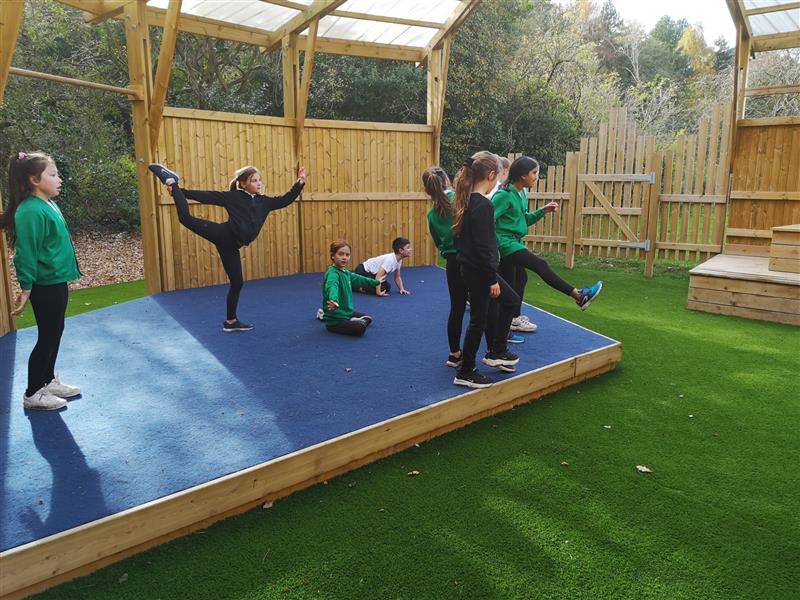
A simple mindfulness breathing technique to help children quiet the mind and clam the body is Five Finger Breathing.
Product Spotlight
Children place their hand in front of them, spreading their fingers apart. Using the pointing finger of the opposite hand children begin to trace up the outside of the thumb as they inhale deeply, they then trace down the inside of the thumb as they exhale.
Children should repeat this for the remaining fingers making sure to inhale as they trace up and exhale as they trace down. Children can pause and repeat as needed, reflecting on how they feel.
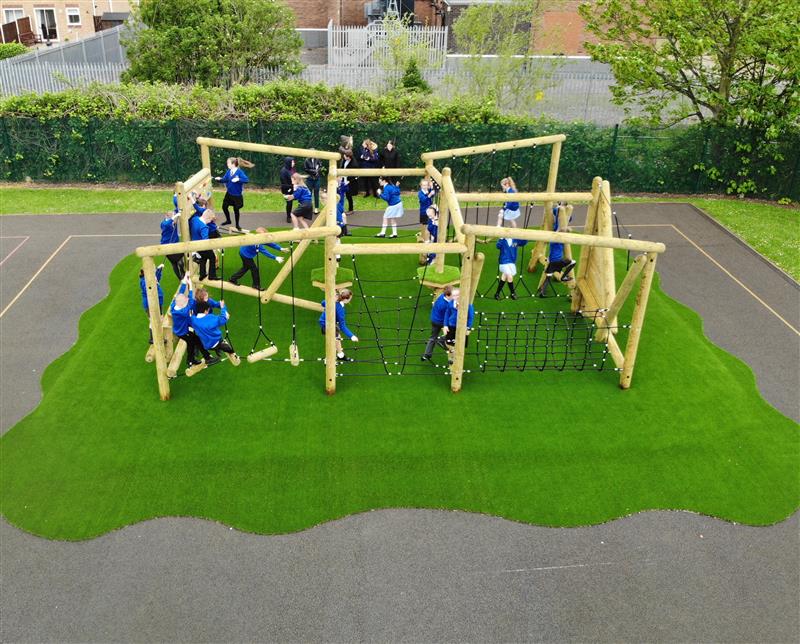
Embrace a Creative, Outdoor Curriculum
Creativity and engaging in the arts can support children’s well-being. Mark making is the creation of lines, patterns, textures and shapes.
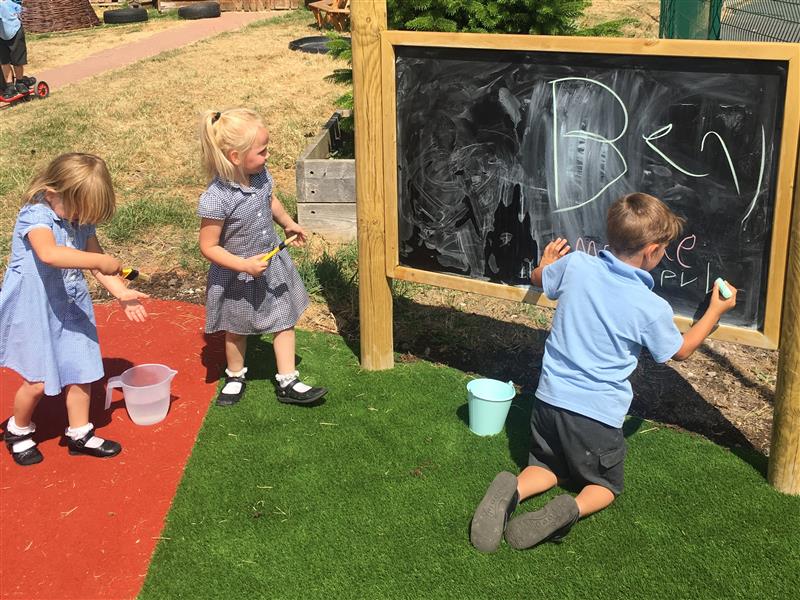
Pentagon’s range of mark making panels allow children to freely express themselves whilst outdoors, allowing imaginations to run wild!
Mark making supports physical, brain and language development, it also helps to build a child’s confidence, giving them the opportunity to communicate their feelings and emotions through a picture or a story.
The outdoor environment is the perfect place for mark making, pebbles can make pictures in the grass, sticks can be used in a sandpit, chalk on the floor and the use of coloured ribbons in the air.
Journaling is recognised as a tool in maintaining good mental health. Allowing children to doodle and write about their feelings helps them to handle and process emotions.
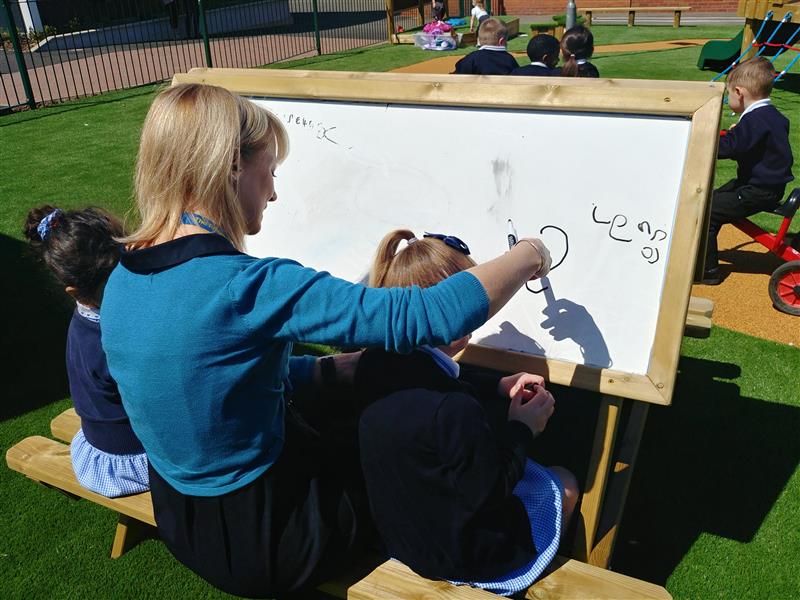
Regular journaling will improve writing and communication skills which could spark a love of storytelling.
A child’s journal is a place for them to experiment with creativity, they can choose to create pictures, stories or scenarios whilst making decisions about colours and stickers to use.
A journal may help children to talk about their day, helping them to rationalise and process things. They can appreciate things from others viewpoint and learn how to deal with certain social interactions.
Taking class journals outside each day could be a really positive time for children to relax, unwind and develop creative minds.
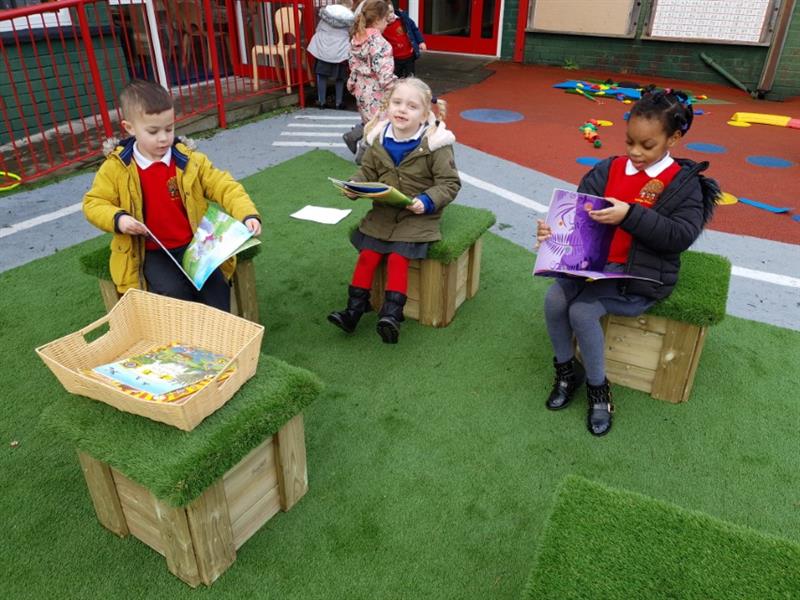
Smile whilst you Sing!
I always found that singing had a really positive effect on the emotional development of pupils.
Singing comes naturally to most children, it can help them to engage with friends, allows them to express themselves, to use creative vocabulary and can really lift the mood of a lesson or playtime.
There is plenty of evidence to support just how good singing is for us. Singing improves self-esteem and general confidence, it provides an outlet for feelings and a sense of belonging to a group.
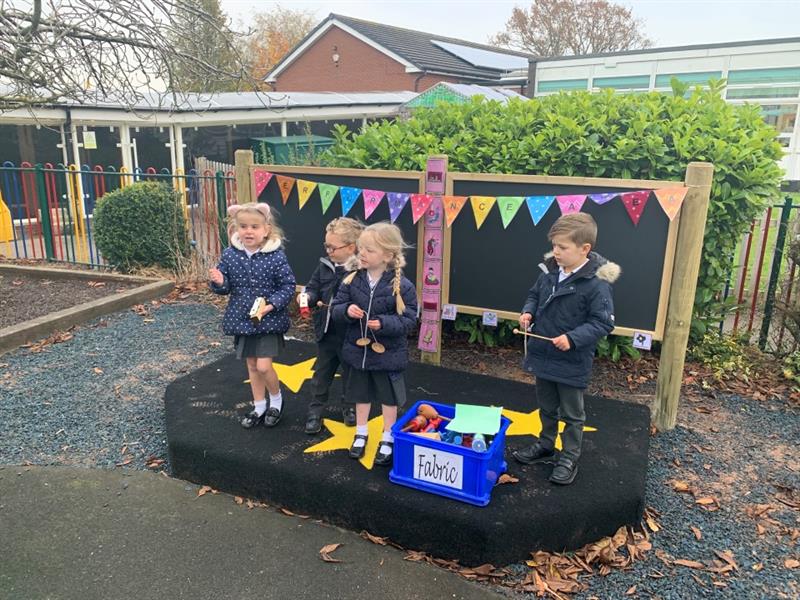
In my experience, singing, even when making yourself look silly, can distract children from negativity, improving their mood and helping them to feel safe, calm and comfortable.
Having an Outdoor Musical Stage would provide children with a real sense of achievement and they also don’t have to worry about being too noisy!
Pupils would be energised after plenty of singing, music and dancing. They may feel better about themselves and will be ready to embrace structured learning.

Get into the Garden!
Gardening can be a way to mitigate the increase in mental health issues among school children.
Getting children to explore their outdoor environment inspires them to learn about different plants, provides them with a healthy hobby and develops an appreciation for growing their own food.
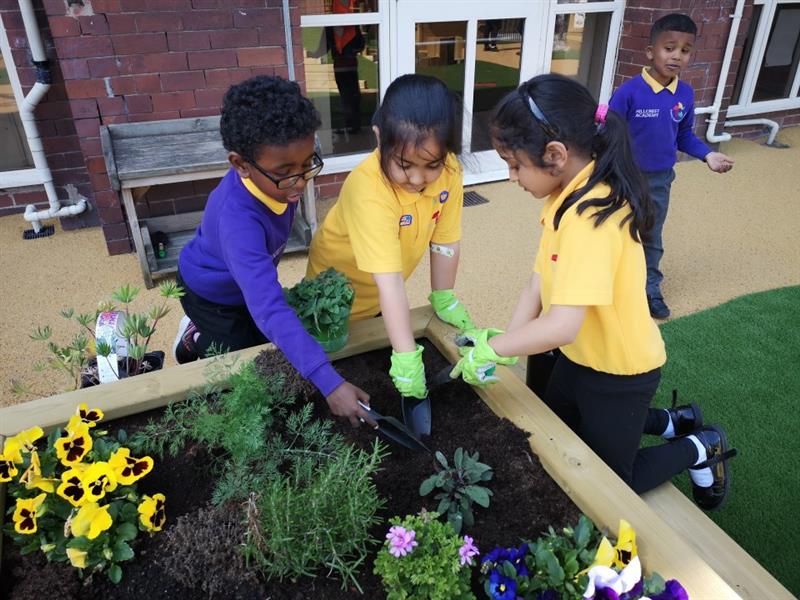
Gardening is a great form of exercise which lifts our mood and helps us to feel more productive. Exposure to natural daylight can stimulate production of the sleep hormone melatonin, which when coupled with plenty of fresh air can help children to achieve a better night’s sleep.
Growing their own plants and vegetables can be very satisfying for children, boosting their own self-esteem. A school garden is a place for great fun whilst also providing a space for calm and peace.
If children are given their own area of a garden or Planter, they gain a great sense of control and ownership. Children’s creativity will soar as they imagine filling the space with flowers, vegetables, beans, a Bug Hotel or a fairy garden.
Many of us see gardening as a spring/summer activity but there is plenty of work for children to do in the garden all year long!
Children can be involved in clearing the garden area in preparation for next year. Leaves can be raked and placed in the compost bin, bulbs can be planted and numerous vegetables such as brussel sprouts, cabbages, leeks, kale and parsnips can be harvested through the winter.
Pupils may enjoy making seed bombs using seeds, compost, water and clay as a way to spread wildflowers and even decorating terracotta pots or making some ‘pot people’ can be a special, creative activity for a gardening club.
Spending time in nature can help children’s mental health and well-being. Being outside in all weathers activates children’s senses and creates a unique feeling of wonder.
Playing in nature makes children feel happier and is good for their bodies and minds. Simple things like counting the different colours they can see and lying on the grass to watch the clouds helps children to process their emotions and reflect on how they are feeling.
The ability to stop and listen to the birds, to notice the frost patterns and feel the bark of the tree are the kinds of experiences waiting for us this season. Even if it’s for a short time each day, let’s enjoy being outside with our classes and boost our well-being this winter!



